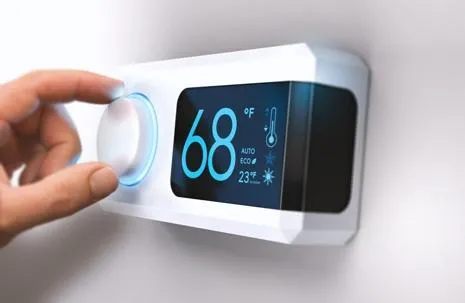Blog
Home / Blog

HVAC Zone Systems - Everything You Need To Know
Is your home's HVAC system struggling to keep up with different temperature needs in different parts of your house? You may need a zone system! In this blog post, we'll explain everything you need to know about HVAC zone systems, including how they work and whether they could be the right solution for you. Keep reading to learn more!
What is an HVAC zone system and how does it work?
An HVAC zoning system is a type of advanced technology that is used to control the temperature inside a residence or commercial building. By creating different "zones" throughout the facility, each area can be tailored to its specific heating and cooling needs. The HVAC zone system works by splitting an HVAC unit into two separate components: an indoor thermostat for monitoring room temperature and controlling zoning dampers that direct conditioned air through flexible ducts in each zone. The indoor thermostat acts like a central station, communicating with the various zones throughout the facility. This allows homeowners or business owners to adjust temperatures quickly and cost-effectively over large spaces, leaving them more comfortable in their environments. It can also save energy consumption with its zone-by-zone approach.
The benefits of having an HVAC zone system in your home
Installing an HVAC zone system can be a great investment for homeowners seeking to increase the comfort and efficiency of their home. Zoning allows you to divide your home into different areas, each of which can be controlled independently and adjusted according to how much heat or cooling is needed in each specific area. This promotes greater comfort throughout the house while improving energy efficiency by using only the amount of energy necessary to maintain an ideal temperature in each area. In addition to providing more comfortable living conditions, this also has the potential to reduce long-term costs, as less energy is being used overall.
How to choose the right HVAC zone system for your home
When selecting an HVAC zone system for your home, it is important to consider the size of the space you're heating and cooling. Square footage and ceiling height are just two of the factors you should consider when trying to determine what type of HVAC zone installation will work best for your home. Researching your options and comparing systems can help you choose a zoning system that will efficiently regulate both comfort levels and energy usage. Although HVAC zone systems can be pricey upfront, the long-term benefit of having zones will save you money over time due to precise temperature control to coordinate with individual needs at different areas of your home.
The different types of HVAC zone systems available on the market
Choosing the right HVAC system for your home doesn't have to be complicated. On the market, you'll find single-zone and multi-zone HVAC systems that are both energy efficient and cost effective. A single-zone system is beneficial as it will provide even air distribution throughout a single space, while a multi-zone system lets you customize the comfort levels of different areas. It's even possible to add zones to an existing single zone system in the future if needs change. Furthermore, those looking for a more sophisticated approach could consider investing in a smart HVAC system which lends control of air quality and temperature from remote locations like a smartphone or tablet device. Whichever type of HVAC zone system is chosen, homeowners are sure to make their property more efficient and comfortable than ever before.
How to install an HVAC zone system in your home
Installing a home HVAC zone system can be a great way to increase your home's energy efficiency and better control the temperature of each room. If you are planning this project, it is best to start by consulting a HVAC contractor who can guide you in choosing the right system for your house. DIY zone installation kits are also available for those feeling up to tackling the project themselves. Even if you choose to install one yourself, make sure to follow professional steps, preferably with help from an HVAC contractor, as improperly installed systems can cause heightened energy costs and inadequate air flow.
Tips for maintaining your HVAC zone system
HVAC zone system maintenance is essential in order to keep your HVAC unit running smoothly for years to come. Taking the time for regular HVAC repairs can prevent catastrophic failures that can be expensive and disruptive to daily life. Proper HVAC maintenance also ensures your HVAC system won't consume more energy than it needs and it will remain as efficient as possible. Some tips for maintaining an HVAC zone system are to regularly check the filter, have a professional inspect the ventilation system and ducts, get an annual HVAC furnace inspection, and schedule HVAC repair services immediately if an issue is noticed. Taking these steps will help protect your HVAC system and save you money in costly repairs later down the road.
Now that you know all there is to know about HVAC zone systems, it’s time to take the next step and get one installed in your home. The benefits are too great to pass up! Not only will you save money on your energy bills, but you’ll also enjoy a more comfortable home year-round. When it comes to choosing and installing an HVAC zone system, be sure to book an appointment with an experienced contractor. They can help you select the right system for your home and ensure that it’s installed properly. With just a little bit of care and maintenance, your new HVAC zone system will provide years of comfort and savings.

